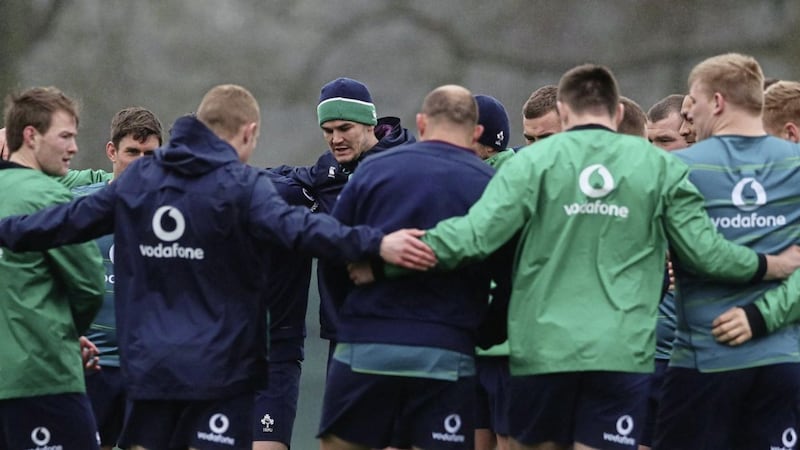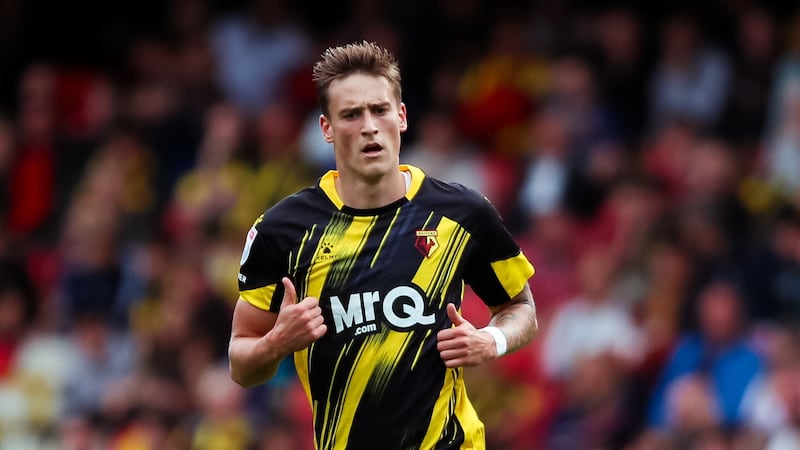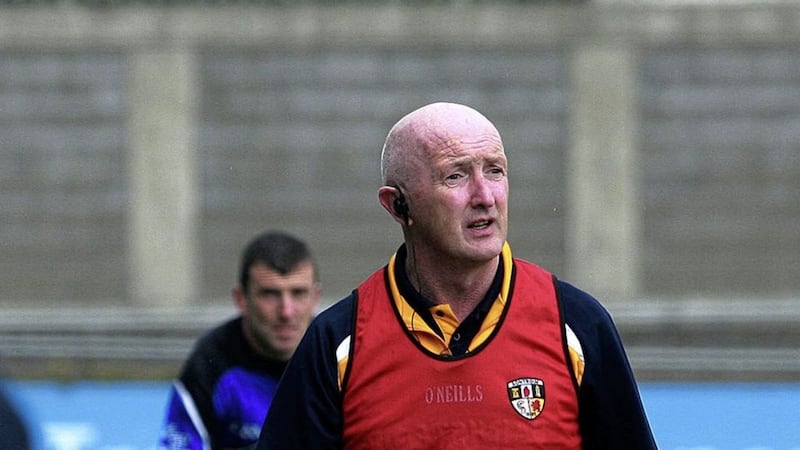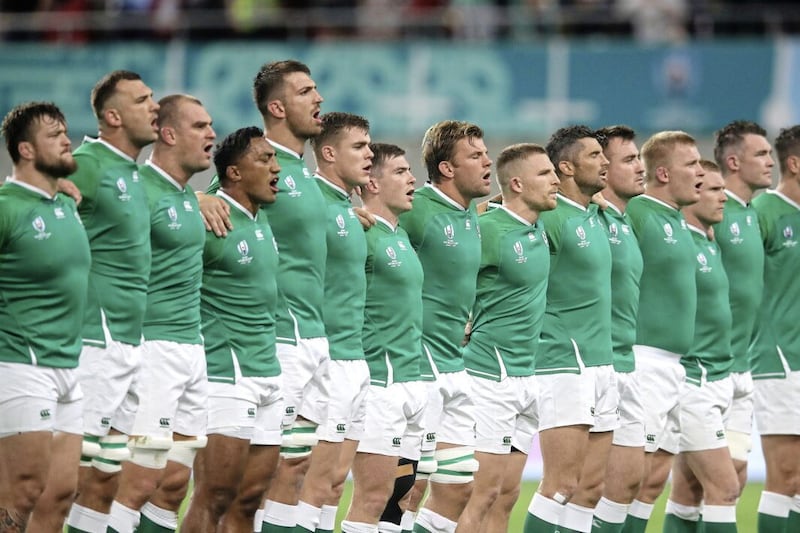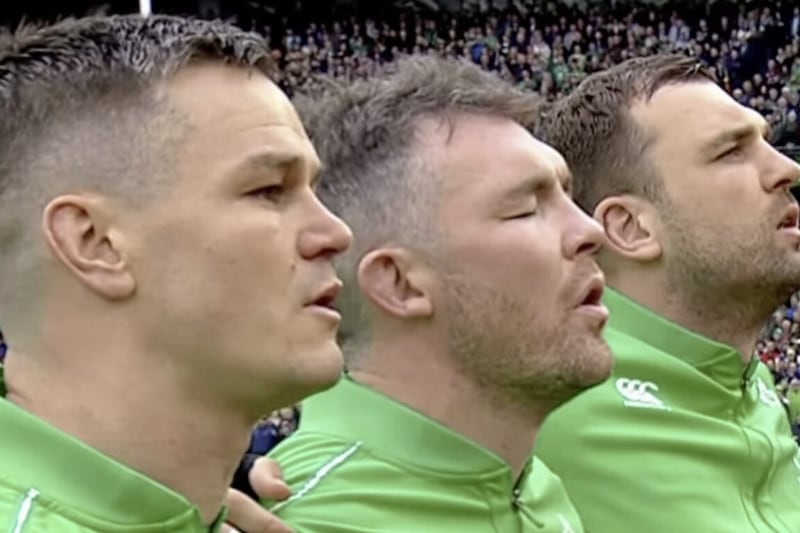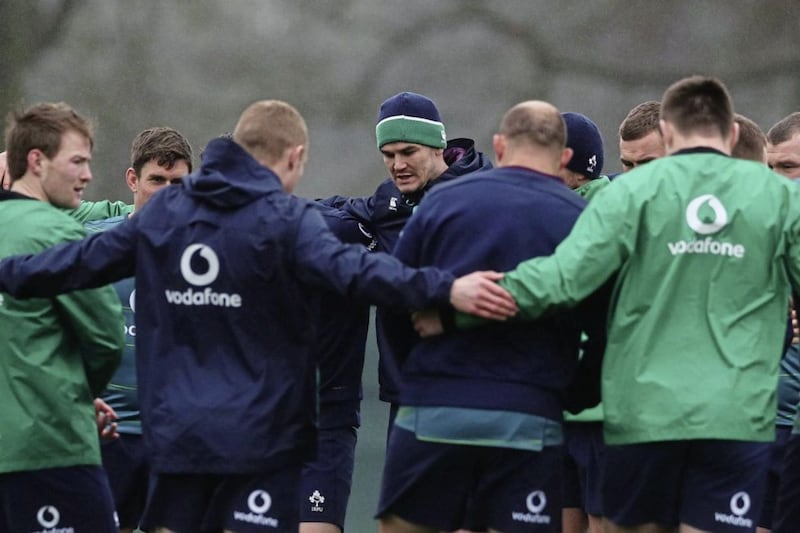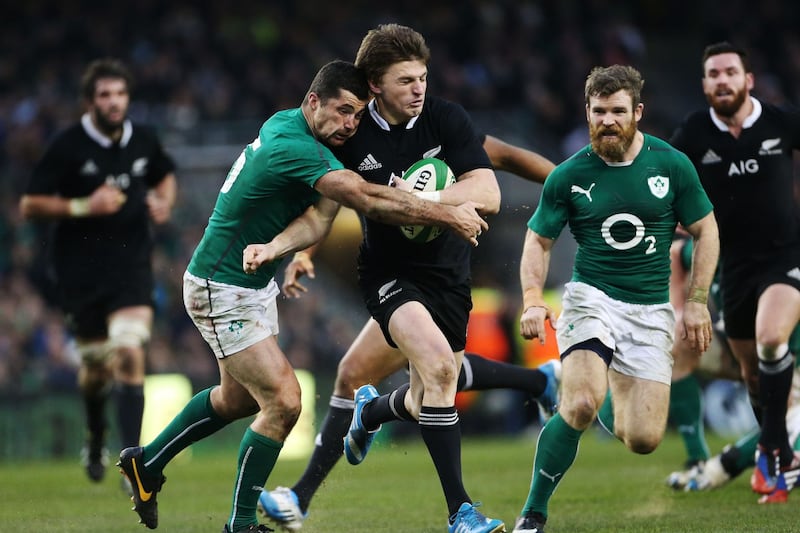IRELAND'S Call – derided by many nationalists, liked by many unionists.
Ireland's call – listened to by most nationalists, ignored by most unionists.
This is a contradictory part of the world (voices off: 'no it isn't!', 'yes, it is!') but those apparently opposing statements still make sense, depending on what you mean by Ireland's call.
The rugby anthem fits the first description; and the second applies to the appeal to northerners of the Republic of Ireland soccer team.
An upper or lower case letter can make a big difference – as we'll see again later in this column.
Confession time: I didn't like 'Ireland's Call' at first, judged purely as a song, but it has grown on me, and the symbolism in the lyrics is powerful, the message one of disparate parts coming together, stronger together.
Anyone who suggests that there isn't provincial pride within Irish rugby clearly doesn't know Irish rugby. I'm still bitter at my belief that some Ulster stars of the Eighties were overlooked for the Ireland team.
Yet the four proud provinces are united on the Ireland team.
I've got tired of hearing and reading complaints about the use of 'Ireland's Call'. Some of its critics even suggest that it's to blame for poor performances; how they explain the many great displays, given that 'Ireland's Call' is sung at ALL Ireland matches, is beyond me.
Then again, they're not really criticising 'Ireland's Call', they're criticising what it's not: it's not 'Amhran na bhFiann'.
Yet they don't seem to understand, or at least accept, that 'Amhran na bhFiann' is not, and cannot be, a unifying anthem across the entire island.
The sort of person who complains most about 'Amhran na bhFiann' not being played outside the Republic of Ireland state also tends to be outraged that nationalist players on the Northern Ireland soccer team have to listen to 'God Save The Queen' (although that's a much more reasonable complaint).
Just as the sort of person who gets really annoyed about those players not singing 'GSTQ' is usually mightily offended that players from the unionist tradition have to hear 'Amhran na bhFiann' being played at all.
Those nationalists who don't want any compromise have a habit of listing the colours of the Irish tricolour as 'green, white, and gold' or, worse still, 'green, white, and yellow'.
Either they're not actually such great patriots and they don't know what the colours of the flag really are, or they can't bear to acknowledge the orange element and the symbolism of coming together that those colours represent.
Equally, there are plenty of those who wave the Union flag around – and call it the Union Jack – who probably have no idea that there's an Irish element in there, in the form of St Patrick's Cross.
The same sort of people who don't really want Ulster players turning out for Ireland.
Which brings me on to why the other Ireland's call (small 'c') is in the headlines again after Northern Ireland soccer manager Michael O'Neill criticised the Football Association of Ireland for apparently persuading two brothers from Derry city, Aaron and Jordan McEneff, to switch their allegiance to the Republic of Ireland set-up.
O'Neill went so far as to label the timing of the approach to Aaron, during the European U21 qualifying campaign, as "morally poor".
I can understand his frustration, with those young talents joining fellow Derrymen Darron Gibson, James McClean, Shane Duffy, and Eunan O'Kane – and others – into the Republic's ranks.
However, as I've always done, I defend the right of players to choose.
Michael himself said, in his very first interview as NI boss "I'm not going to convert a Man United fan into a Liverpool fan overnight. That situation is down to the individual."
That related to supporters, but the same principle applies to players, who start out and continue as supporters themselves.
Obviously the rivalry between NI and RoI isn't as fierce as between those sets of Reds, but still.
Yet I also agree with O'Neill's criticism about timing, albeit in a slightly different way.
Most people would know their national allegiance by the age of 16, so switches after that birthday become increasingly questionable as the player gets older.
Players are absolutely entitled to pledge allegiance to the FAI – but they shouldn't string the IFA along and take advantage of their coaching for years before doing so.
Having said that, although the IFA may have some legitimate gripes about 'poaching' and approaches to players, the lads themselves generally feel what they feel – and what they feel is Irish, not Northern Irish.
Perhaps for many it comes back to that point about Liverpool and Manchester United fans – but Derry City's Josh Daniels switched recently because, like many before him from that city, he simply felt overlooked by Northern Ireland.
The IFA might be able to do more to hold on to players, particularly from county Derry and Derry city especially.
Sometimes the IFA can do no right: consider the criticism of using blue in its kits, even though it's 'St Patrick's Blue', which is in the Association crest and was the kit colour of Ireland teams from 1882 to 1931.
Still, the IFA could – and should – change the anthem it uses.
It could – and should – change the flag it uses; take off that crown.
Yet northern nationalists would still probably hear a stronger call to (the Republic of) Ireland.
That's the real world – and there's as much sense in complaining about that as there is in complaining about 'Ireland's Call'.
A Linfield fan told me a few years ago that 'Ireland is an aspiration'; but playing for Republic of Ireland teams turns that aspiration into reality.
As Michael O'Neill said in January 2012: "If the player makes the decision still to play for the Republic of Ireland, I think we have to respect that. We may not like it and we may not agree with it, but we have to respect it.
"It's important, particularly with younger players, that we don't put them under unnecessary pressure in this situation because that would be unfair on them."
Even a 'hard border' won't stop people crossing over.
Rugby is in the middle of an ongoing debate about eligibility for national teams, with the proposal that the residency requirement should extend from three to five years.
Yet you could wait 10, 20, 50, 100 years and someone who feels Northern Irish won't call themselves 'Irish' - just as the same timeframes could elapse and a northern Irishman would never capitalise that 'n'.

